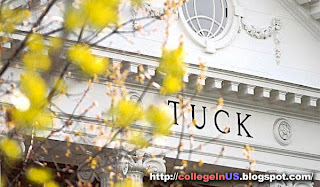Online MBA with Technology Edge From New Jersey Institute of Technology
 Online MBA with Technology Edge From New Jersey Institute of Technology - NJIT’s Online MBA
Online MBA with Technology Edge From New Jersey Institute of Technology - NJIT’s Online MBAprogram is offered through the School of Management, which is recognized by U.S. News & World Report’s 2012 Annual Guide to America’s Best Colleges as among the nation’s Best National Universities. The School of Management is also accredited by the Association to Advance Collegiate Schools of Business (AACSB).
The internationally accredited School of Management at NJIT teaches students how to use technology to solve modern business problems. The program is designed to help students with technical backgrounds build their business expertise and prepare for leadership opportunities.
Keeping in mind that NJIT is not a traditional business school, this new take on the MBA explores the varied ways that advancements in science and technology can provide a strong foundation for strategic 21st-century management skills. Students learn technical applications for every area of business and the importance of data-driven management decisions. The courses strategically incorporate technology-based case studies, simulations, and team projects with a range of business concepts, such as corporate finance, global marketing management, and information systems principles.
NJIT’s graduate program offers three specializations: Management Information Systems, Marketing, and Finance. The Management Information Systems concentration sharpens the MBA focus by placing strategic value on the role of information management in business. Students learn how technology can improve business process management, including how to use business intelligence systems to create a competitive advantage in the marketplace.
The Marketing concentration gives the MBA an innovative focus by teaching students how to strategize in a digital business world, where technology has revolutionized consumer behavior, redefined product life cycles, and given consumers more control. Additionally, students focus on the development and marketing of high-technology products.
The Finance concentration brings an advanced analysis focus to the MBA, which is expressed through the integration of technology and business practices. Financial literacy is critical for management at every level in every industry. Students learn the latest tools in forecasting and study the financial strategies for technology intensive firms.
For more information about the curriculum or the program requirements of New Jersey Institute of Technology's online MBA program, visit http://mba.online.njit.edu or contact a school representative at 1-877-615-9842.
About New Jersey Institute of Technology
NJIT, New Jersey's science and technology university, enrolls more than 8,900 students pursuing bachelor's, master's and doctoral degrees in 121 programs. The university consists of six colleges: Newark College of Engineering, College of Architecture and Design, College of Science and Liberal Arts, School of Management, College of Computing Sciences, and Albert Dorman Honors College. U.S. News & World Report's 2012 Annual Guide to America's Best Colleges ranked NJIT in the top tier of national research universities. NJIT is internationally recognized for being at the forefront of knowledge in architecture, applied mathematics, wireless communications and networking, solar physics, advanced engineered particulate materials, nanotechnology, neural engineering, and e-learning. Many courses and certificate programs, as well as graduate degrees, are available online through the Division of Continuing Professional Education. The term “Virtual Classroom®,” coined and trademarked by NJIT, dates back to the notable presence of New Jersey’s Science and Technology University in this field since 1989.
About the NJIT School of Management
The mission of the School of Management is to create the edge in business knowledge by: preparing a diverse student body to lead globally; integrating business with ethics, technology and innovation; interacting with organizations to advance interdisciplinary research; and promoting regional economic and community development.
Sumber : http://www.prweb.com/
Sumber : http://www.prweb.com/












